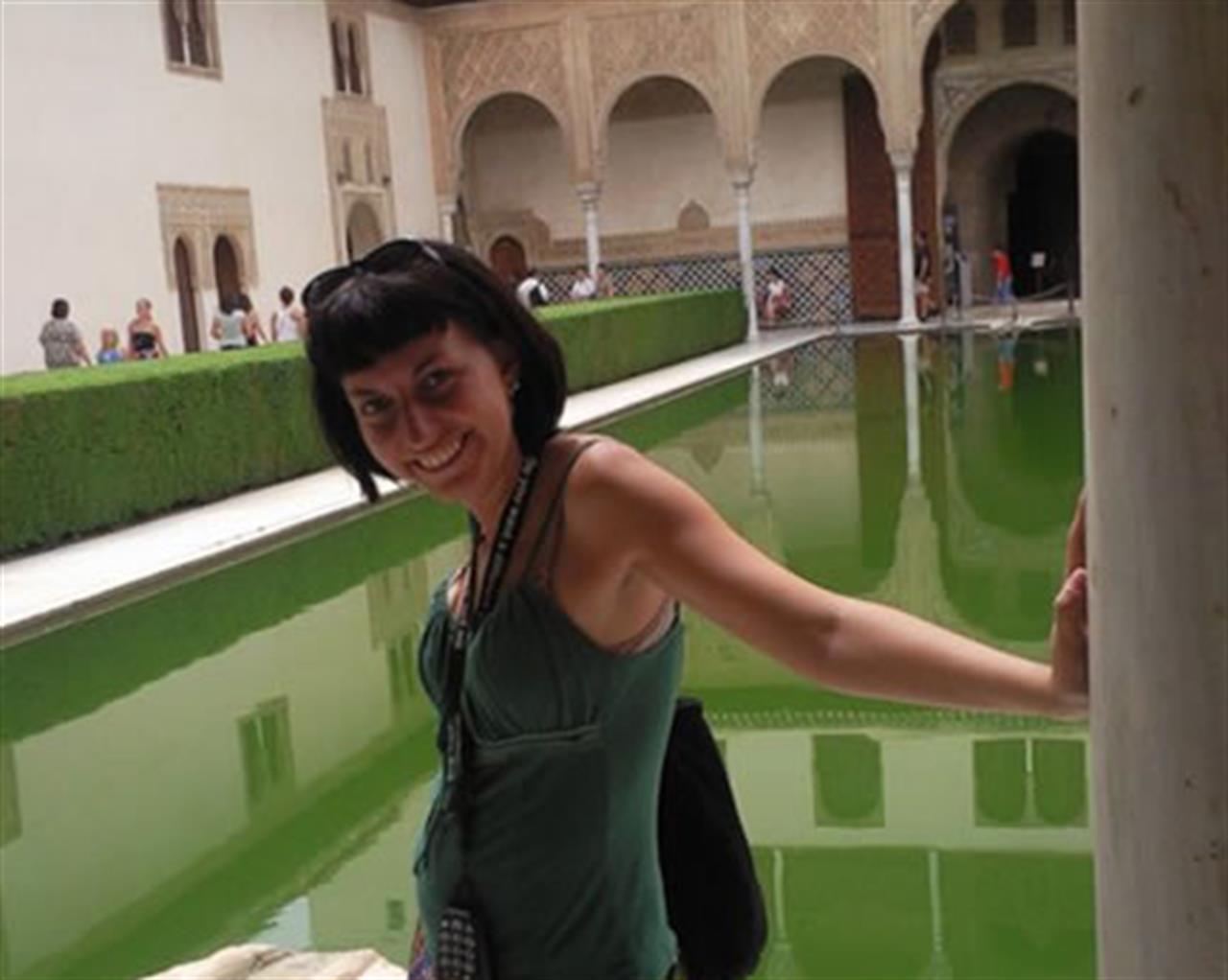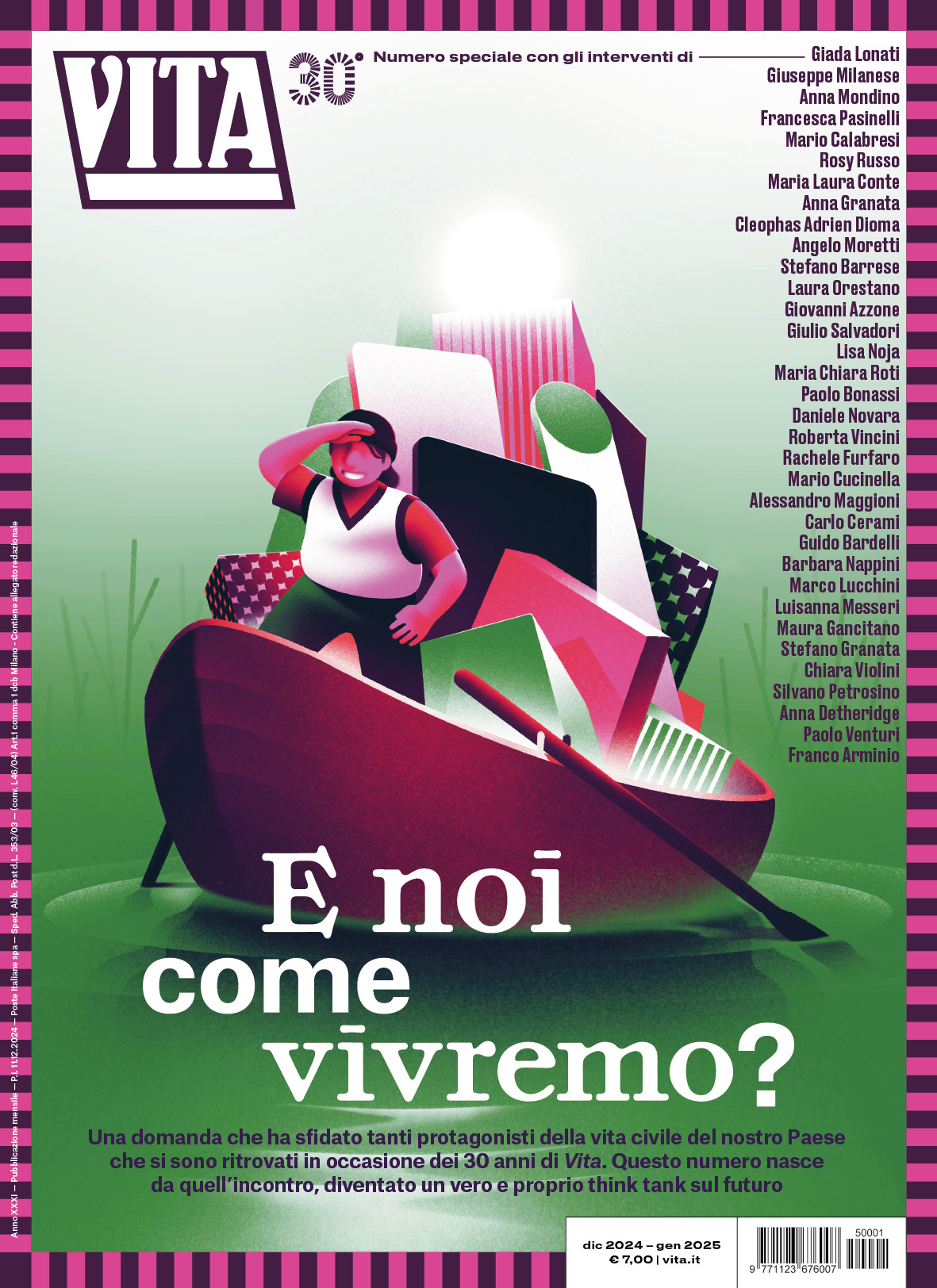Formazione
Tackling immigration in Spain
Developmental internship: read Anna’s story

Anna Cuccuru, 27, is a member of AIESEC – the world’s largest student driven organization. At present she’s carrying out an AIESEC international internship.
– What are you studying? Which university are you attending? I am finishing my second degree in International Relations at the University Ca’ Foscari of Venice. My first degree is in Social and Public Communication. I have an international master in Intermediterranean Mediation organized by the University Ca’ Foscari, the Universitat Autonoma de Barcelona and the Université Paul Valery de Montpellier.
– What kind of internship did you choose and why? I chose a development internship because I am interested in illegal immigration and development cooperation.
– Which city and which country did you go to? Seville, Spain.
– Did you have previous experiences abroad? During my first degree I have been to Jordan and Palestine to make a research for my thesis on how the Israeli Palestinian conflict was treated in the media. I made a comparison between real facts and information provided by newspapers, to demonstrate that there was a difference between eastern and western countries in dealing with news about conflicts. I did many interviews to Aljazeera, Ma’an News Network and to many other radio, newspaper and television journalists. I also interviewed some first and second generation Palestinian people to know their opinion about the conflict and how it was represented in the newspapers. Then I analysed European newspapers and middle – eastern newspapers to verify the different way to present news and to see if the perceptions of Palestinian media were correct.
– How were you selected for the internship and what were you doing? Thanks to my experience in the Middle East when I sent my cv to AIESEC Seville I was selected in only three weeks. I was chosen by the NGO Proclade Bética and by AIESEC Seville to work in Proclade’s head offices in the communication area. During the first week of work I presented a survey about news manipulation by Spanish newspapers regarding the issue of unaccompanied children who arrive from Morocco on rubber boats in Tarifa, a small town in the southernmost coast of Spain, known for immigrants arriving on its beaches from North Africa. Proclade had been looking for one year for an expert in communication to update and manage all the contents of their website and to deal with the graphic of the newsletter. I was lucky to be selected for this job and it was a pleasure for me to work in this area with this NGO.
– How long does your internship last? Three months, from February 2 2011 to April 30 2011.
– What was your internship about exactly? Proclade Bética is a catholic NGO of missionaries of the religious order of San Antonio Maria Claret that works in development cooperation. It works in Africa, Asia and South America, and also has some projects in development education and programmes to promote social integration for women, old people, youth at risk and immigrants. During the first weeks the NGO asked me to prepare a workshop about news manipulation and informative cut, to be presented in a school. I worked as administrator of the website and gave transparency to the financial section. I created a space with graphics showing inputs and outputs of Proclade to demonstrate how and where Proclade raises and invests money. In the last two months I haver been revising and correcting all the mistakes (information, design, link mistakes) of the web page, also activating new areas and creating new contents.
– Five things you learnt during the internship? To update and maintain contents, to use Photoshop and other graphic programs, to use Picasa, a free photo editing software, to mediate between working time in the NGO and working time in Foro Empresarial, the information company that cooperates to updating and maintaining the contents of Proclade’s website.
– Why did you choose to go to Spain? After my international master who conferred me three degrees in Italy, France and Spain, my Italian university, the Ca’ Foscari, proposed to the Italian students to finish the degree beforehand thanks to a negotiation in the international relations department at the faculty of foreign languages and literatures. I arrived in Seville in May 2010. I came here with the Leonardo project, working in a refugee centre and I continued to work with other NGOs and with UNHCR. In December 2010 I participated to my first AIESEC conference in Padua and there I asked if it was possible to come back to Seville with AIESEC to also have the chance to prepare there my thesis: a comparison between the way Italy and Spain deal with the refugees issue.
– What was the best moment of your experience? Meeting my friends in Seville, knowing the AIESEC Seville Committee, participating in particular to their Induction Day (a one-day conference for students who are entering AIESEC), attending dinners and barbecues with my work team during week-ends, hearing from the staff of Foro Empresarial that they miss me, hearing my headmaster saying to AIESEC’s president that my work was very difficult and important and that he is proud of me.
– Would you change your experience in any way? If I came back I would try to relax more and to go out more with the AIESEC Seville team!
– Any suggestions for students who are about to leave on an AIESEC internship? I think that I knew AIESEC too late. My master graduation was in February and I came to know this students’ association in December 2010. It was great for me to have the possibility to live an AIESEC experience: my suggestion is to make the most during the years of university to participate as active members. I would like to thank the committee of Seville, especially the exchange and interchange area for having given me the possibility to learn more about AIESEC and speak about my experience in their newsletter.
Cosa fa VITA?
Da 30 anni VITA è la testata di riferimento dell’innovazione sociale, dell’attivismo civico e del Terzo settore. Siamo un’impresa sociale senza scopo di lucro: raccontiamo storie, promuoviamo campagne, interpelliamo le imprese, la politica e le istituzioni per promuovere i valori dell’interesse generale e del bene comune. Se riusciamo a farlo è grazie a chi decide di sostenerci.
